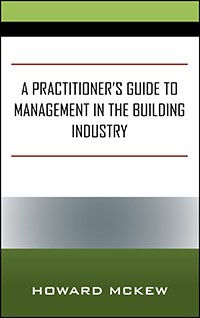In reflecting back over the past year, I can't recall owner concern being as big an issue as it now appears to be, and I believe a core problem lies with a lack of sensitivity by the design-construction participants toward the owner relative to the final installation being left in a filthy condition. This dissatisfaction with the "deliverables" may be a bad assumption by me, but the inspection business is coming in, and our findings are not necessarily design or construction deficiencies but instead the state of uncleanness of the facility; these are cases where a picture is worth a 1,000 words. Remember, perception is reality!
Cleanliness, always
Analogous to this issue, picture yourself going to a car dealership to pick up your new, $20,000 automobile. Now, I know you worked hard to earn the money to purchase this vehicle. Having said this, continue to focus on your new car rolling out of the showroom with a few scratches on the paint, the right front fender a different color, and the engine backfiring. Now, my question to you is, "Would you take ownership for this new automobile?" The answer is obviously "no," so why would today's building industry think an owner is going to be satisfied with a new, dirty building?Equipment covered in construction dust, trash scattered across the floor, a few beer bottles, etc., is a formula for creating an unhappy client. From the owner's point of view, and along the lines of your reaction to your beat-up new automobile, the final product is not a quality product. At the same time, the client believes they have paid good money for a mediocre performing facility.
Remember, perception is reality, and the designer and the builder may have provided an efficient and useful building, but the client doesn't see it in the same way. As an engineer, I can say it is a lot easier to deliver a clean-looking boiler than to provide the optimum boiler selection.
As a person who has been on the construction side of the business for the past 17 years, I have found it is easier to provide a pristine boiler than to install this boiler. So why does the building industry choose to "shoot itself in the foot" by working hard to provide a value-added product and then deliver it covered with dirt?
The problem has elevated building commissioning to a new plateau by providing a need not only to provide an independent inspection of the installation but also to make sure the building is "operating on all eight cylinders."
Perception is everything
Think about it. If the building were turned over dirty, what would make the customer think the building team invested the needed time to tune up the systems? Cleaning is easy! Commissioning the building systems to function as designed in each of the modes of operation takes time, lots of time.Again, perception is reality, and there is a real good chance that the functional performance tests will fail because the full amount of time needed to commission a system requires dedication and a commitment to provide a quality product. If people in responsible charge don't have the sensitivity to provide a clean product, why would they act any differently when it comes to providing an efficient product?
Cleanliness should be common sense, but in today's building environment it's not. The first impression always has a lasting impression, so why is our industry not taking advantage of the easy tasks? Don't we have bigger issues to address and solve than dirt and trash buildup? ES



